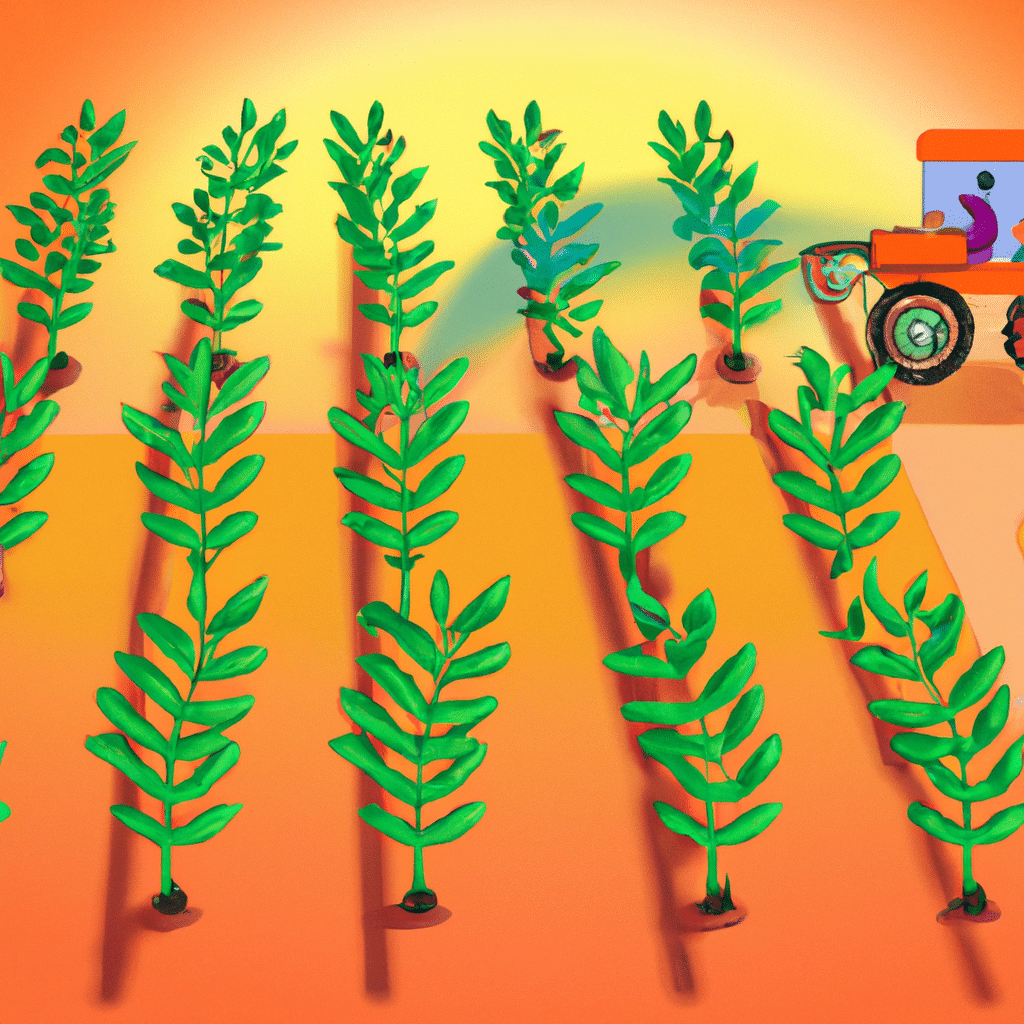In recent years, the agricultural industry has witnessed a remarkable transformation with the integration of Artificial Intelligence (AI) into farming practices. Smart farming, also known as precision agriculture, utilizes AI technologies to optimize crop yield, enhance resource management, and revolutionize traditional farming methods. This article delves into the various ways AI is reshaping the agricultural landscape, from automated data analysis to autonomous farming machinery. Join us on this journey as we explore the immense potential of AI in modern agriculture and how it can help farmers achieve higher productivity and sustainability.

The Rise of Smart Farming
With the world’s population steadily increasing, the demand for food continues to soar. Consequently, farmers are under pressure to maximize crop yield while minimizing the environmental impact of their practices. This is where AI comes into play, offering innovative solutions to address these challenges. Smart farming leverages AI algorithms, machine learning, and IoT (Internet of Things) devices to collect, analyze, and utilize vast amounts of data in real-time. By harnessing the power of AI, farmers can make data-driven decisions, optimize resource allocation, and achieve more sustainable farming practices.
AI-Powered Crop Monitoring and Analysis
One of the key areas where AI shines in smart farming is crop monitoring and analysis. Traditional methods of monitoring crops, such as visual inspection, are time-consuming and prone to human error. However, AI-based systems equipped with computer vision technology can accurately assess crop health, detect diseases, and identify nutrient deficiencies. By analyzing images captured by drones or ground-based sensors, AI algorithms can quickly identify potential issues in crops, leading to timely interventions and improved crop management.
Furthermore, AI can predict crop yields based on historical data and environmental factors. By analyzing weather patterns, soil conditions, and other variables, AI algorithms can provide farmers with valuable insights into expected crop yields. This enables farmers to plan their harvests effectively, optimize resource allocation, and make informed decisions regarding crop rotation and diversification.
Precision Farming with AI
Precision farming, a cornerstone of smart agriculture, involves managing fields in a site-specific manner to maximize productivity. AI plays a crucial role in precision farming by providing accurate and real-time information about soil conditions, irrigation needs, and pest infestations. By utilizing AI-powered sensors and IoT devices placed across fields, farmers can monitor and control various parameters remotely.
For instance, AI algorithms can analyze soil moisture levels and weather conditions to determine the optimal time for irrigation. This ensures that crops receive the necessary amount of water, reducing water wastage and enhancing overall water use efficiency. Similarly, AI-powered pest detection systems can help identify and target specific areas affected by pests, minimizing the need for widespread pesticide applications. This not only saves costs but also reduces the environmental impact associated with excessive pesticide use.
Autonomous Farming Machinery
Another groundbreaking application of AI in agriculture is the development of autonomous farming machinery. These intelligent machines, equipped with AI algorithms and sensors, can perform various tasks autonomously, relieving farmers of labor-intensive activities. From planting and harvesting to crop spraying and soil tilling, autonomous farming machinery can significantly enhance productivity and reduce manual labor requirements.
AI-powered autonomous vehicles can navigate fields with precision, avoiding obstacles and optimizing routes for maximum efficiency. By utilizing machine learning algorithms, these machines can adapt to changing field conditions, ensuring accurate and efficient operations. With the ability to work around the clock, autonomous machinery can expedite time-sensitive tasks and improve overall crop yield.
Data-Driven Decision Making
The vast amount of data generated through AI-powered systems in smart farming opens up new possibilities for data-driven decision making. By analyzing historical and real-time data, farmers can gain valuable insights into crop performance, resource utilization, and environmental impact. This enables them to fine-tune their farming practices, optimize resource allocation, and implement sustainable strategies.
Moreover, AI can assist in predictive analytics, helping farmers anticipate potential challenges and make proactive decisions. By analyzing weather forecasts, market trends, and other relevant data, AI algorithms can provide recommendations on when to plant, when to harvest, and when to sell crops for maximum profitability. This level of informed decision making empowers farmers to navigate the complexities of the agricultural market more effectively.
The Future of Smart Farming
As AI continues to evolve, the potential for its application in agriculture is limitless. From advanced robotics and drone technology to plant genetics and crop breeding, AI holds the key to unlocking greater efficiencies and sustainability in the agricultural sector. By embracing smart farming practices, farmers can not only enhance their crop yield but also contribute to a more sustainable and resilient food system.
In conclusion, smart farming powered by AI is revolutionizing crop yield and resource management in the agricultural industry. Through AI-based crop monitoring and analysis, precision farming techniques, autonomous machinery, and data-driven decision making, farmers can achieve higher productivity, reduce environmental impact, and address the challenges of feeding a growing population. As we embrace the power of AI in agriculture, the future looks promising for a more efficient, sustainable, and resilient farming ecosystem.



